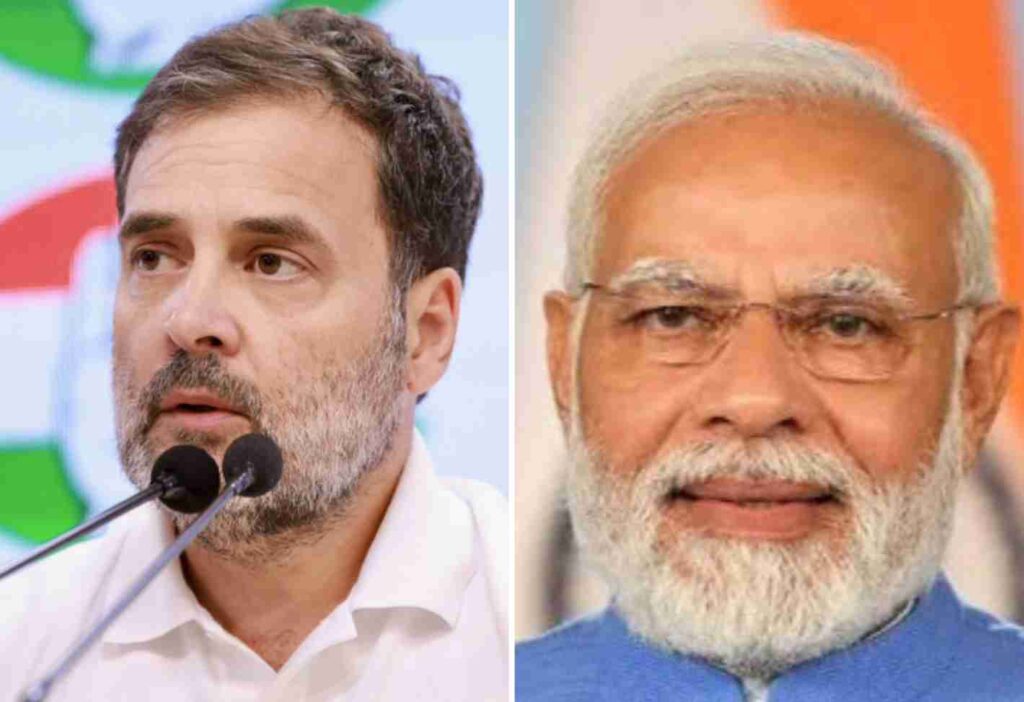Explore the surprising results of India’s 2024 election, detailing key shifts in political power across major states and the evolving competitive landscape for the BJP and opposition alliances.

With most of India’s 640 million votes counted from the six-week-long election, the world’s largest democratic exercise has yielded some surprising results.
The governing Bharatiya Janata Party (BJP) of Prime Minister Narendra Modi is projected to win 240 seats, falling short of the 272-seat majority needed in the Lok Sabha, the lower house of India’s Parliament, which has 543 seats. However, with its allies, the BJP has secured a majority. The opposition INDIA alliance, led by the Indian National Congress party, has won 222 seats.
These numbers differ significantly from the 2019 results when the BJP-led National Democratic Alliance (NDA) won 353 seats, with the BJP alone capturing 303 seats.
Also Read:- Chandrababu Naidu Set to Return as Andhra Pradesh CM with NDA Alliance Triumph
Key changes in India’s political landscape are evident in several states:
Uttar Pradesh: Close Races and the Rise of the SP
Uttar Pradesh (UP), governed by the BJP since 2017, has 80 parliamentary constituencies and is crucial for determining governance in New Delhi. Both Modi and Congress leader Rahul Gandhi are contesting seats in this state.
In 2019, the NDA won 64 seats, with the BJP taking 62. The Congress won one seat, the Bahujan Samaj Party (BSP) won 10, and the Samajwadi Party (SP) won five.
The 2024 results, however, show a significant shift. The SP won 37 seats and the Congress six, totaling 43 for the INDIA alliance. The BJP won 33 seats, with its allies securing three more. Notably, the BJP lost the Faizabad constituency, home to the Ram temple in Ayodhya, which was central to its campaign.
Political analyst and Hindi professor Apoorvanand noted that the alliance between the SP and Congress was more effective this time, with stronger chemistry between SP leader Akhilesh Yadav and Gandhi. The SP expanded its voter base beyond Muslims and the Yadav community to other marginalized groups, and dissatisfaction among voters under 35 also weakened the BJP’s influence.
In Varanasi, Modi’s victory margin decreased significantly from 500,000 votes in 2019 to 152,000 votes. In Rae Bareli, Gandhi won by 390,000 votes, while in Amethi, Congress’s Kishori Lal defeated BJP’s Smriti Irani, who had unseated Rahul Gandhi in 2019.
West Bengal: Trinamool Maintains Its Stronghold
West Bengal, governed by the opposition All India Trinamool Congress (TMC), saw the BJP improve in 2019, winning 19 of the state’s 42 seats, while the TMC won 22 and Congress two.
Despite predictions of a BJP majority, the TMC won 29 seats, the BJP 12, and Congress one in 2024.
Also Read:- Controversy Surrounds Kejriwal’s Treatment in Tihar Jail: AAP Alleges Mistreatment and Conspiracy
Kerala: BJP Breaks New Ground
Kerala, traditionally a left-leaning state, saw the BJP’s Suresh Gopi win the Thrissur constituency by 74,686 votes, becoming the BJP’s first Lok Sabha parliamentarian from Kerala. The Congress won 14 seats.
Analyst Apoorvanand attributed the BJP’s success partly to aligning with Islamophobic elements within the Christian community and leveraging the debunked “love jihad” conspiracy theory.
Maharashtra: Discontent with the BJP
In Maharashtra, the opposition INDIA alliance won 29 of 48 seats, with Congress leading in 13 and BJP in 10. Apoorvanand cited the BJP’s “politics of humiliation” and fracturing of the Shiv Sena as reasons for its losses.
Karnataka: BJP’s Eroding Influence
In 2019, the BJP won 25 of Karnataka’s 28 constituencies. This year, the BJP won 17 seats, with the JD(S) winning two and Congress 10. Despite losses, the BJP remains strong in coastal areas like Mangalore.
These results reflect a changing political landscape across India, with significant gains for opposition parties and a more competitive environment for the BJP.
Also Read:- SKM’s Political Journey: From Inception to Dominance in Sikkim’s Political Landscape
